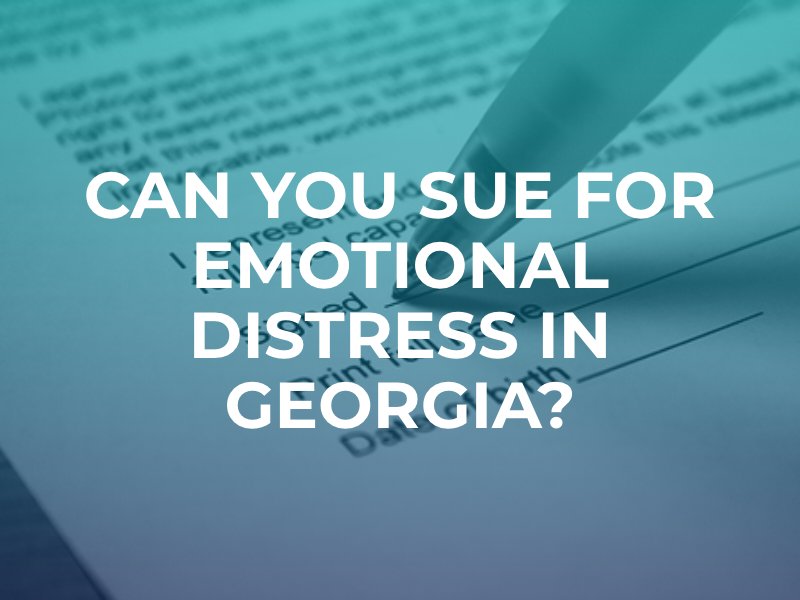Can You Sue For Emotional Distress In Georgia?
If you or somebody you care about sustains an injury caused by the careless, negligent, or wrongful actions of somebody else, there may be various types of compensation available for your injuries and other losses. Often, you will see that somebody has been awarded “emotional distress” damages as a result of their injuries. In some cases, however, there is an attempt to recover emotional distress damages as a result of witnessing the injury or death of a loved one. Here, we want to discuss what “emotional distress” actually means and whether or not you are allowed to file a lawsuit to recover these damages in Georgia. In particular, we want to focus on whether or not a person can recover emotional distress damages in the event they sustained no physical injuries.

Emotional distress claims in Georgia
Most people realize that it is possible for a person to suffer from emotional distress due to an incident that did not cause a direct impact on their body. However, Georgia is one of a handful of states that does not allow a person to seek emotional distress damages due to the negligence or wrongful actions of another if they did not sustain a physical impact from the incident. This “impact rule” has largely been done away with in other states around the country, but not Georgia.
The situations in which this debate arises often occur when parents or spouses are involved in a serious vehicle accident in Georgia, and one occupant seeks to recover compensation for emotional distress because they watched a child or spouse die or suffer from a catastrophic injury.
The courts in Georgia have thus far stuck to the rule that any person seeking emotional distress damages must have also been physically impacted by the same incident that they are seeking damages for. In other words, the court will acknowledge that a person suffered from emotional distress due to watching a spouse or child sustain an injury or die, but only if the person who witnessed the incident also sustained an injury themselves.
Yes, this impact rule is thought to be highly illogical.
This leaves individuals who witness horrific incidents without any means to recover compensation for their emotional distress if they themselves were not harmed.
Specifically, the impact rule in Georgia says that a person cannot recover emotional distress damages unless:
- There is a physical impact to their person
- The physical impact causes a physical injury to their person
- The physical injury causes the person some sort of mental suffering or emotional distress
The rules surrounding emotional distress in these cases used to be even worse in Georgia. Before the current system, the emotional distress or mental anguish had to come from a person’s own injuries directly rather than from watching their loved one suffer.
The court system in Georgia has explained this rule by saying that it prevents a flood of litigation from any bystander who witnesses a catastrophic incident. They say that this rule prevents fraudulent claims from clogging up the court system.
What types of compensation are available?
In the event a plaintiff is able to recover emotional distress damages through the impact rule in Georgia, there are various types of compensation they could receive. Some of the most common types of emotional distress damages awarded and personal injury claim in Atlanta include coverage for a victim’s:
- Depression
- Anxiety
- Humiliation
- Insomnia
- Post-traumatic stress disorder (PTSD)
The total amount of compensation awarded in these cases will vary depending on the facts and circumstances surrounding each case. These damages will largely be left up to a jury to decide.